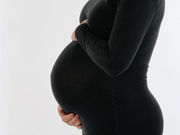Tag: Pregnancy: Risks
Maternal Distress in Pregnancy Tied to Childhood Asthma Risk
Maternal depression during pregnancy may increase child's risk for asthma at 10 years of age
During Outbreak, Most Pregnant Women Had High Zika Awareness
Survey reveals opportunities for more provider discussions, particularly for poor, uninsured women
First-Trimester BP Category Linked to Hypertensive Disorders
Blood pressure trajectory between first, second trimesters tied to hypertensive disorders of pregnancy
Pregnancy Complications Up for Women Born at Low Birth Weight
Risk greatest for women born with birth weight <2,500 g who develop overweight/obesity
Assisted Reproduction May Up Risk of Placental Anomalies
Risk of placenta previa, placental abruption up in ART vs. spontaneously conceived singleton pregnancies
Chromosomal Abnormalities, Miscarriage More Likely After 40
But older women have no increased risk of congenital malformations, stillbirth versus those aged 20-34
Renal Function Tests Stratify Risk in Pregnant Women With HTN
Baseline assessment of renal function can identify the risk of developing severe preeclampsia
Early Warning Trigger Tool Could Help Reduce Maternal Morbidity
Use of tool cuts severe maternal morbidity and composite morbidity; no change in ICU admissions
Maternal Cardiac Dysfunction Precedes Recurrent Preeclampsia
Women who go on to develop recurrent preeclampsia have lower stroke volume, cardiac output
Hormonal Contraceptives Safe After Complete Hydatidiform Mole
HC use doesn't increase risk of gestational trophoblastic neoplasia regardless of hCG level














